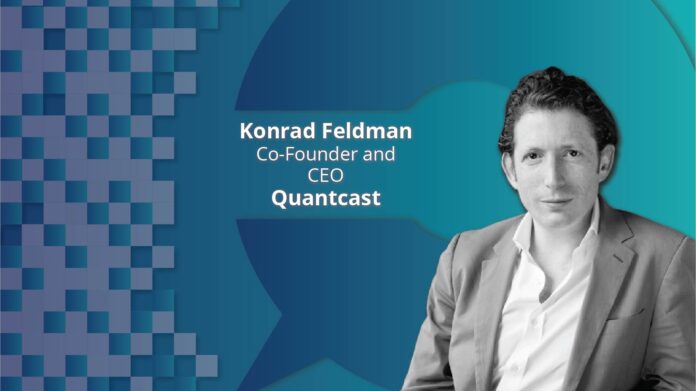“Google will still have the understanding of customer behavior needed to deliver and measure the impact of advertising once third-party cookies are gone. If these changes result in the open internet becoming harder to buy for brands and agencies, the resulting shift in advertising budgets could put further pressure on independent publishers,” says Konrad Feldman, Co-Founder and CEO, Quantcast, in an exclusive interview with TalkCMO.
TCMO Bureau: According to you, what are the complications that can arise from Google’s ban of third-party cookies?
Konrad Feldman: Cookies have been the primary mechanism for understanding relationships between otherwise disparate events over time and across sites on the open internet. They have been used extensively to support digital advertising, from creating relevant experiences to managing advertising frequency and measuring advertising effectiveness.
Read More interview : Discussing a CMOs Post-pandemic Marketing Handbook
Billions of people access content freely across the open internet, with most publishers relying on advertising to support their investment in producing that content. Less relevant advertising is less valuable. Less measurable advertising is also less valuable. Thus a potential complication is that the walled gardens that already capture a disproportionate share of digital advertising budgets will become even more attractive to advertisers should advertising on the open internet become harder.
With its wealth of first-party data about many aspects of our lives since so many of us use a plethora of its products, Google will still have the understanding of customer behavior needed to deliver and measure the impact of advertising once third-party cookies are gone. If these changes result in the open internet becoming harder to buy for brands and agencies, the resulting shift in advertising budgets could put further pressure on independent publishers.
TCMO Bureau: What are your thoughts on Google’s ban of identifiers?
Konrad Feldman: Google’s move further complicates the path ahead for publishers, brands and agencies and, with it, the ease with which advertising can be bought and sold on the open internet. The same companies, including Google, making the open internet harder to buy, have a vested interest in their own walled gardens. Their position may make it even more difficult for publishers, brands and agencies to reach their audiences.
I believe that technology companies need to help even more in providing an alternative to walled garden approaches. Brands require a platform that has live data and machine learning capabilities to deliver outstanding outcomes that rival the tech giants. This will level the advertising playing field for brands, agencies and publishers on the open internet.
TCMO Bureau: How do you see the future of a cookie-less world? What would your alternate suggestions be?
Konrad Feldman: We do not believe there is a one-size-fits-all solution to a cookie-less world. In addition to innovating identity solutions, technology companies should participate in cross-industry initiatives such as the IAB Tech Lab’s Project Rearc and the W3C. They could interoperate with emerging open source identity approaches and proprietary identity technologies.
Read More interview : A Guide to Better Business for CMOs
For all of us who support the vision of a vibrant, free and open internet, it is time to come together. Building new identity solutions as well as educating customers on their data rights will require a lot of time, investment and effort. This is time well spent so that customers understand that they can influence the future of the free and open internet. And as an industry, it is the path forward to building long-lasting solutions that customers can trust.
TCMO Bureau: Do you believe that enhancing first-party data is enough for better customer acquisition and retention?
Konrad Feldman: No. First-party data is incredibly valuable but also difficult and costly to acquire and maintain. Additionally, its availability differs dramatically by type of business. To achieve growth in the global economy today, brands will also need to work with partners that have scaled probabilistic approaches based on AI and machine learning to complement their first-party data assets.
Konrad Feldman is the co-founder and CEO of Quantcast. Launched in 2006, Quantcast empowers brands, agencies, and publishers to know and grow their audiences. In March 2021, Quantcast unveiled the Quantcast Platform, a new and innovative intelligent audience platform for audience planning, activation and measurement on the open internet.






